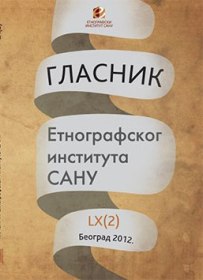У традицији идеја: Евроскептицизам у Србији – дискурс антизападњаштва?
In Tradition of Ideas: Euroscepticism in Serbia: Anti-Western Discourse?
Author(s): Jovana DikovićSubject(s): Anthropology
Published by: Етнографски институт САНУ
Keywords: tradition of ideas; anti-western discourse; euroscepticism; eurorejects; Ujedinjena оmladina srpska (Serbian Joint Youth)
Summary/Abstract: In this paper I questioned whether euroscepticism can be perceived as an immanent current of Serbian anti-western discourse, which have usually been used as synonyms by one part of public and scholars. Followinг the most influential conceptualisation of party positions on European Union and integration, provided by Kopecky and Mudde (2002), I classified positions of several dominant Serbian political parties according to attitudes on EU and integration. As the analysis has shown, eurosceptisism does not exist as an option in Serbian political spectrum, between euroenthusiasts, from one side, and eurorejects, on the other side. Since euroscepticism represents quite new and complex phenomenon, I showed that it has nothing to do with anti-western discourse in Serbia. On the contrary, in the second part of the paper I reveal the link between current eurorejects and the founders of anti-western ideas in Serbia, that were established in the second half of XIX century. Ujedinjena Omladina srpska (Serbian Joint Youth) was national movement of young writers and cultural workers who developed anti-western feelings and orientation in the spirit of European romanticism and ideas of national liberation. However, these ideas have been preserved and slightly changed to the present, due to specific political circumstances and almost permanent social, economic or identity crises, which were especially intensified during last two decades. Therefore, current eurorejects are real inheritors of these ideas, that are adapted to current political circumstances and vocabulary, but essentially they represent one, more or less, unchanged belief system which is worth exploring. The main object of the paper was to point out that eurosceptisism does not represent the inner side of anti-western discourse in Serbia, on the one hand, and that current eurorejects in fact continue to develop nineteenth century concept of hostility towards the other which is based on dogma, self-idealism, and romanticised images of nation, state and religion.
Journal: Гласник Етнографског института САНУ
- Issue Year: LX/2012
- Issue No: 2
- Page Range: 25-42
- Page Count: 18
- Language: Serbian

